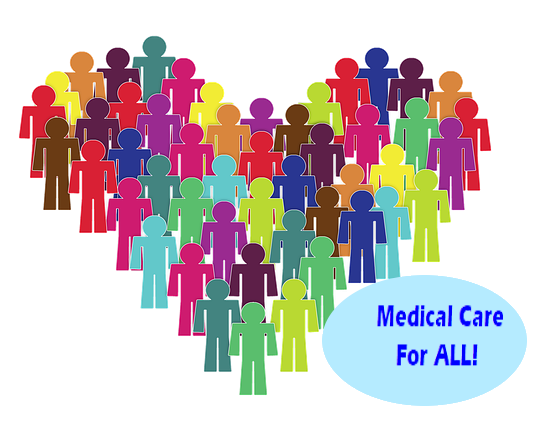
The choice between herbal medicine and synthetic drugs has been a subject of debate and curiosity among patients and healthcare professionals alike. Herbal medications are extracted from natural sources such as plants, herbs, and minerals, while synthetic drugs are created through chemical synthesis. so, what helps you? Herbal medicines vs Synthetic drugs.
Let’s explore the differences between herbal medicine versus synthetic drugs, examining their effectiveness, safety, and the factors that influence the choice of treatment. By understanding the pros and cons of each approach, we can make informed decisions about the medications used to manage our health.
Definitions
Herbal medicines; extracted from natural sources such as plants, herbs, and minerals, and have been used for centuries as traditional medicine.
Synthetic drugs; are created in a laboratory using chemical processes, and are a product of modern pharmaceutical research and development
Uses of Medications
Cultures around the world have relied on the natural sources for their medicinal properties for many generations. Many herbal medicines are still used today, either in their original form or as extracts, teas, or supplements.

Scientists have been doing research on the effectiveness of North and South American Indigenous peoples use of specific herbal medicines they’ve used. Their research of medicinal plants used by Indigenous peoples have had some verified with promising benefits, and further research continues.
Synthetic drugs also have a wide range of uses, and been made available as antibiotics, painkillers, and antidepressants plus many more. These are produced in standardized doses making it easy to administer and prescribe.
Benefits and Limitations
Herbal Medicines
One major benefit of herbal medicines is the minimal risk of adverse effects and are often viewed as a gentler alternative. However, it is crucial to remember that herbal medicines can still react with other medications, and produce side effects including death.

Additionally, the lack of understanding or knowledge of standardized dosages and quality control can be a limitation and dangerous. It’s important to KNOW this information, and important to speak with a trained Herbalist. It is always advisable to inform your doctor about any herbal medicines you are using, or plan to use, and ensure your safety and well-being.
The debate between herbal and synthetic drugs continues. Both have their merits and limitations. Herbal medicines have a rich history and are derived from natural sources, while synthetic drugs are a product of scientific advancements.
Synthetic Drugs
A major concern with synthetic drugs is that many synthetic drugs can come with a laundry list of possible adverse reactions, ranging from minor annoyances like drowsiness or nausea to more serious complications.
Regulations and oversight of synthetic drugs is in place to safeguard public health, suppliers face strict regulations and oversight. Regulatory bodies like the Pharmaceutical Drugs Directorate (PDD) apply Food and Drug regulations under the Authority of the Food and Drug Act, in Canada. They ensure drugs for sale to the Public are safe, effective and of high quality. This is why we get Prescriptions from our Doctor, and have to make a trip to the pharmacy.

While this system provides a level of assurance, it’s important for us to remain informed about the potential risks and benefits of synthetic drugs. Concerns may still arise regarding their impact over extended periods of time and effects on our body. Remember, if you have questions, it’s OK to ASK questions to your Doctor or Nurse Practitioner.
Effectiveness in treating specific conditions
We eventually have to determine which type of medication will be more effective depending on the specific condition being treated. In certain cases, synthetic drugs have shown remarkable effectiveness, offering targeted and potent solutions.

On the other hand, herbal medicines can also be effective, particularly for milder ailments or when used as a complementary therapy. It’s important to evaluate the available options and consult your healthcare professionals to make the best decision.
There are some treatments of including both herbal and synthetic drugs together, and can be reviewed with your Doctor. You’re allowed to ask.
Factors Influencing the Choice of Medications
Personal preferences and beliefs
Ultimately, clients should have a say in their treatment options. Personal beliefs, values, and preferences can influence the choice between herbal and synthetic drugs. Some individuals may favor the idea of using natural remedies, while others may trust the scientific advancements behind synthetic drugs. Open and honest communication with healthcare professionals can help align treatment choices with personal preferences.

Medical professional Recommendations
The expertise and recommendations of medical professionals play a crucial role in medication choices. Physicians, pharmacists, and other healthcare providers have extensive knowledge of the benefits and risks associated with different medications. Their guidance can ensure that clients make well-informed decisions based on their unique conditions and healthcare needs.
Availability and Affordability
Availability and affordability are practical considerations when choosing medications. Factors such as geographic location, insurance coverage, and financial constraints can impact access to both natural and synthetic drugs. Understanding these constraints and seeking alternative options, such as generic versions or exploring herbal alternatives, can help navigate these challenges.
Making Informed Decisions about Medications
It is an ongoing debate between herbal and synthetic drugs, there is no definitive answer. Both options have their pros and cons, and what works for one person may not work for another.
Ultimately, making informed decisions about medications involves considering factors such as effectiveness, side effects, regulations, individual preferences, medical professional recommendations, affordability, and accessibility. With changes to the Canadian healthcare system, affordability will definitely be a huge factor for the low-income, homeless, and single parents.

Remember, it’s important to maintain open communication with your healthcare professionals, research available options, and carefully weigh the potential risks and benefits. So, whether it’s a synthetic drug or a herbal remedy, the key is to approach medication choices with a healthy dose of wit, wisdom, and a willingness to adapt as new information emerges.
Ultimately, the choice of medication should be based on personal needs, preferences, and the guidance of healthcare professionals. By staying informed, and weighing the benefits, and risks, we can make decisions that align with our health care goals. Remember, the goal is to prioritize safety, and effectiveness to achieve optimal health outcomes. Nobody else but you, and immediate family will genuinely care about the outcome of your health.
Learning in Motion
Extra Learning Resources
Top Pharmaceutical Websites and Blogs
Ontario Herbalists Association – Herbal Education
What Are the Benefits of Herbal Medicine?
I hope you found this article informative, and gained some new insight. Please feel free to leave your comments and Share your new found knowledge with others. Use the ‘Ask A Question’ form to make a request on a topic of your own interest. It is FREE to subscribe to my RSS feed.
AIC| An Informal Cornr, all rights reserved. Ginsense writes articles at AIC|An Informal Cornr about business skills and development, health, science, technology, society and enjoys advocating for independence, security and a better world for all of us. Learn something new 🙂 Visit again!
